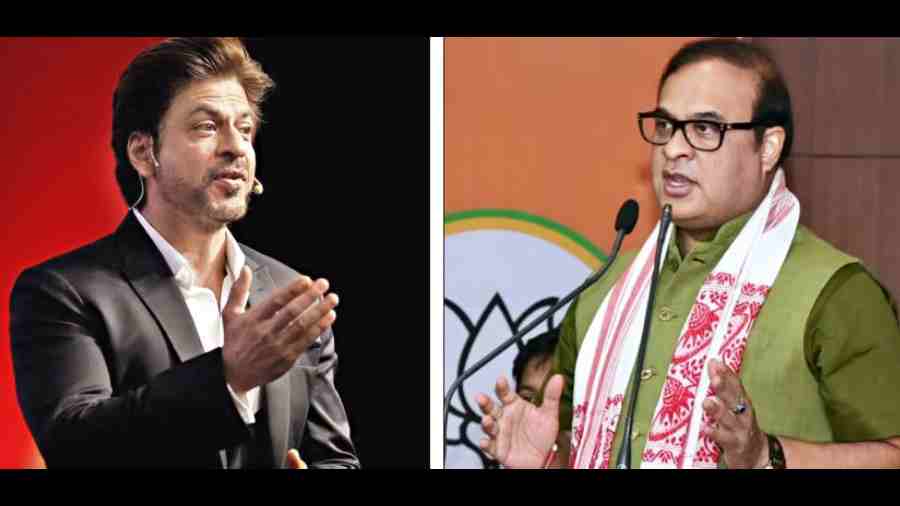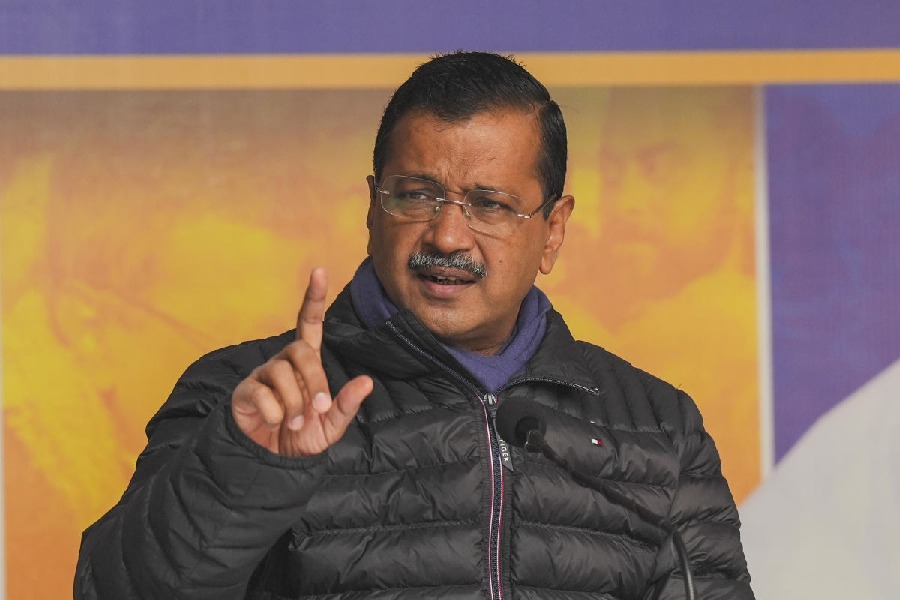The more I think about it, I’d say the problem lies with us. We expect politicians to have a solution to every problem, a comment on every predicament, an opinion on every individual and, indeed, a meaningful, even profound, understanding of all situations. They don’t. They couldn’t, possibly. But not to lose our respect they pretend they do. Yet what they don’t realise — and this is where their silliness comes in — is our expectations have set a trap into which willingly, knowingly, even proudly, they walk in. Well, more fool them!
We’ve now reached the stage where politicians feel the need for a catchy response rather than a thoughtful and intelligent one. The former grabs headlines. It gives them publicity. The latter may be more meaningful, even helpful, but it requires concentration to understand and, thereafter, calls for reflection. It doesn’t have the same impact.
I would say this is the best explanation for Himanta Biswa Sarma’s bizarre comment on Shah Rukh Khan. Questioned by reporters in Guwahati, he said, “Who is Shah Rukh Khan? I don’t know anything about him...”
Frankly, that has to be untrue because if it’s not then the chief minister of Assam must rank among the most ill-informed and unaware of people in our country. In fact, what he said would be akin to Amitabh Bachchan saying, ‘Who is Narendra Modi? I don’t know anything about him.’
I doubt there are many Indians who don’t know who Shah Rukh Khan is. That’s no doubt true of Narendra Modi as well. This is why the chief minister’s comment is not only unbelievable but also best explained by interpreting it as a mistaken attempt to say something that will attract attention and be remembered. In this case, for all the wrong reasons.
Alas, speaking without thinking about what you’re saying has become an almost nationwide folly. In his desire to criticise and condemn the BBC documentary on the 2002 Gujarat violence, the foreign office spokesman, after admitting he hasn’t seen it, called it “a propaganda piece designed to push a particular discredited narrative”. He also accused it of “bias” and “lack of objectivity”. But if he hasn’t seen the documentary, how does he know? Remember, he’s an official spokesperson. That description implies he knows what he’s talking about. One assumes it will be authoritative and credible. Not hearsay or recycled opinion. But that’s all his comments amounted to.
Even the unnamed senior officials of several ministries and agencies, such as external affairs, home and the Intelligence Bureau, who spoke to almost every newspaper in the country went unthinkingly to such an extreme to build their case against the BBC documentary that they ended up raising disturbing questions about India. They accused it of “undermining the sovereignty and integrity of India”. Really?
What they didn’t realise — no doubt because they didn’t pause to think about what they were saying — is that they made our country out to be so fragile and vulnerable that a documentary that hasn’t been broadcast in India and has, at most, been seen by a miniscule sliver of the population with access to YouTube and Twitter can, nonetheless, shake our national fabric to the point it unravels and disintegrates.
In the end, the concern they raised was not so much about the BBC and its documentary but the condition and, even, the survival of our country. Talk about getting it wrong. They scored an own goal.
Now, if only our dear chief minister, spokesman and mysterious senior officials had spoken in jabberwocky, I might have chortled rather than galumphed. So let me end with the immortal words of Lewis Carroll. They can make of them what they want. That’s the beauty of his poem.
“One, two! One, two! And through and through
The vorpal blade went snicker-snack!
He left it dead, and with its head
He went galumphing back.
“And hast thou slain the Jabberwock?
Come to my arms, my beamish boy!
O frabjous day! Callooh! Callay!
He chortled in his joy.”










